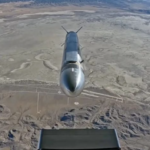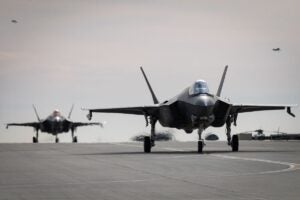By Emelie Rutherford The Air Force's top officer said yesterday neither company competing for the aerial-refueling tanker contract received insight into the other's price proposal or any advantage after the service accidentally disclosed sensitive data to the two rivals. Air Force Chief of Staff Gen. Norton Schwartz insisted the material mistakenly sent this month to competitors Boeing [BA] and European Aeronautic Defence and Space Co. (EADS) about each others' KC-X aircraft bids was not "proprietary" pricing data. While he told…
Recommended
Trending
Congress Updates
Wicker Wants Legislation On DoD’s Equity Investments In Minerals Supply Chain
Legislation regarding equity investments by the Defense Department in critical mineral supply chains is needed to strengthen the larger defense industrial base and demonstrate to the “free market” that the […]
“Not Sure How They Get To Where They Wanna Be,” Calvert Says of $1.5 Trillion Defense Topline Proposal
As the federal government enters a third week of tardiness in a fiscal 2027 budget release, a big question is how the Pentagon will be able to spend $500 billion […]
Path Uncertain For $1.5 Trillion FY ‘27 Defense Topline After Trump Casts Doubt On Second Reconciliation Bill
The path to achieve the White House’s call for a $1.5 trillion defense topline in 2027 appears murkier now after President Donald Trump has cast doubt on the prospects of […]
Senate Budget Dems Push For Defense Reconciliation Spending Details, Cite ‘Slush Fund’ Concerns
Democrats on the Senate Budget Committee have raised “significant concern” with the Pentagon’s move to classify reconciliation spending plans, urging the department to provide more public details on how the […]
Job Feed
-
Principal Analyst, Market Access Platform Technology Lead
Vertex Pharmaceuticals - Boston, Massachusetts -
Local Montana Campaign Organizer
United Today Stronger Tomorrow - Flathead, MT -
Neurosurgeon
RWJBarnabas Health - New Brunswick, NJ -
Cleaner
1st shift - Servicon Systems, Inc. - Marietta, GA










